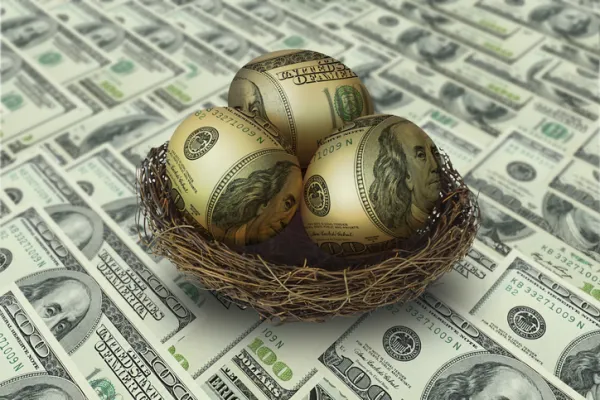On a recent October evening, in a Chicago ballroom, 85 men and women who make a living selling active asset management to institutional investors — hedge funds for pension funds, mostly — stood in groups of four or five. They palmed cocktails amid stilted conversation, although few drank with spirit. After all, it’s important not to be tanked in front of the clients.
One man stood off to the side. He, too, sold a hedge fund to pension funds — and, by almost unanimous consensus, he was world-class at that lucrative act. “It’s a trade-off,” he said. “I could be home with my kids, or I could be here.” He had multiple clients arriving soon, and keeping them happy — if only by showing his face, updating them on the latest founder and portfolio news, and listening to their concerns — outweighed the time he was missing at home. Those calculations remained his alone. His wife might have calculated differently.
This marketer’s math might have been different a decade ago. From 2003 through 2007 the HFRI Fund Weighted Composite Index — the gold standard of hedge fund indexes — rose a minimum of 9 percent a year, and active managers of all stripes did well. Clients needed less coddling. Sure, the passive MSCI World Index never went below a 9.5 percent annual return, and smart investors understood Nobel Prize–winning economist Bill Sharpe’s argument that active managers cannot, as a group, beat the market. Questioning investment value was less important when everything was ascendant, but that seemingly endless horizon was, in fact, a cliff.
“I don’t know of a time that is as difficult as now to be in active management,” says Tim McCusker, chief investment officer at investment consulting firm NEPC and an observer respected for his honesty. “The same goes for selling it.” McCusker wasn’t in attendance in Chicago, but as an adviser to numerous institutions on how to invest their capital, he knows the conference circuit routine all too well. He also knows the current headwinds that this particular conference’s attendees face. “There is political pressure on the asset owners, and then the market pressure that creates. There is also the general trend toward passive investing. I think it’s only going to get worse. The Department of Labor’s fiduciary rule will push advisers in that direction. And at the end of the day, track records suck.”
That is not a technical assessment, but it is backed by statistics. The HFRI index last beat the MSCI World Index in 2011 — by a paltry 25 basis points. In the subsequent years hedge funds have underperformed that benchmark by as much as 15 percentage points. Other active managers have hardly fared better. As a result, marketers everywhere are attempting what those on the investment side of their businesses have largely failed to do: hedge.
“It’s ‘solutions’; it’s ‘strategic partnerships’,” McCusker says of that hedge. “Everyone is looking at this stuff. If the performance does go bad, they can point to all the other things they’re providing their clients. Theoretically, it’s a stronger return stream. It does buy them time. It’s a hedge against the bad times. It also happens to be right.” But pensioners can’t eat solutions. At some point, underperformance cannot be sustained.
Desperation can flourish. One marketer in Chicago — admittedly, an outlier — shot business cards from the hip like a Wild West gunslinger. His world-class peer, watching from afar, could only chuckle; his fund is up, if only slightly. His family, however lonely, won’t starve — or be forced into public school.
Compensation, of course, underlies all of this panic. Sasha Jensen, founder of Context Jensen Partners and perhaps the most successful executive recruiter for asset gatherers, says, “There are no rules for compensation.” However, she and other observers don’t disagree when it is suggested that an “eat what you kill” model reigns.
This can mean substantial paydays when “elephants,” as large pension plans are often called, agree to invest. For top hunters such as John Novogratz of Izzy Englander’s Millennium Management, this can mean millions. Annual compensation for an average senior hedge fund marketer at a $1 billion fund is $750,000, but paychecks approaching $10 million are not unheard-of. Perhaps the best analogy, McCusker believes, is professional sports. “They’re selling future performance that’s unknown,” he says. “The only thing I can think of is a sports agent. When a guy is up for free agency and you sign him, you’re betting that the great performance he’s done will continue.”
The staples of marketers’ craft remain “understanding, listening, tenacity,” according to Jensen. “Like when you’re marketing any product, it’s really important to understand what your client needs, to not do all the talking, and to be gently persistent. Star marketers think on their feet; they have gravitas paired with facts.” Yet the brutal truth of Bill Sharpe’s math is that over a long enough time frame, even a star marketer can’t save an average active manager.
Hope springs eternal, however — as does the search for alpha. “I do think the active-passive argument will turn,” asserts McCusker. “For marketers, when it turns, it will be very positive because it will swing significantly toward active. They shouldn’t sit and wait for it to turn, but those active managers who adapt — by incorporating algorithmic trading, being more quantitative and computer-based in how they do things — they will have their day in the sun. Mathematically, it’s a matter of who wins and loses, not of active doing well.”
For marketers it’s also a matter of staying sober until the argument, or their fund’s strategy, finally turns. Then, champagne.•






